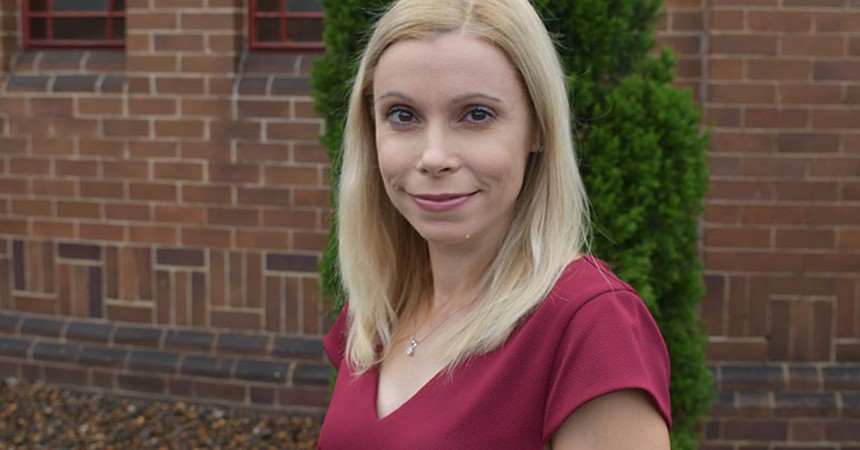Women are underrepresented in decision making roles in the Catholic Church in Australia, however, within the Diocese of Maitland-Newcastle we have wonderful women influencing others and leading a number of our agencies and Catholic schools.
To celebrate the contribution of all women in our region, Aurora interviewed six inspiring women who hold leadership roles in the Diocese on what motivates them and what guidance they could offer to others.
Tanya Russell Assistant Director at CatholicCare
What is your role and what does it involve?
I am Assistant Director at CatholicCare and I also work as a psychologist for clients of CatholicCare and Access Newcastle (our EAP service). As Assistant Director, my role is so varied but overall, I work closely with our director, Gary Christensen, in working according to the goals set within our strategic plan. It’s very different to my previous management role where I directly managed a team and was responsible for the day to day running of the counselling service. This role now involves supporting managers who manage teams and wider organisation based initiatives such as writing tenders, forming and maintaining important working partnerships internally within the Diocese as well as externally – that may be with other CatholicCares or organisations such as the University of Newcastle, supporting internal initiatives such as the Values and Wellbeing Committee and our Aboriginal Reference Group. Every day is different and involves being responsive to change, available to provide support to staff and any new initiatives within CatholicCare and representing the director and CatholicCare at various forums. I really enjoy the variety as well as the opportunity to make a contribution to how CatholicCare provides quality services to all of the communities we support. As a psychologist, I have a small handful of clients but I also provide executive coaching to managers from various organisations. Both of these aspects of my role allow me to make a difference, large or small, to anyone who is part of the CatholicCare community.
Does faith influence the way you lead in the diocese? If so, how?
All staff who work at CatholicCare come from many different faith backgrounds and the same is true for all of our clients. You do not have to be Catholic to work at CatholicCare or to access our services. Within all of this, we work according to Catholic Social Teaching which provides all of us with a framework and understanding of working in a faith based organisation. I am open minded and respectful of all faiths and regardless of who I work for, does not change the way I work in a leadership role. All of us who work at CatholicCare, regardless of our beliefs and faith, work in a missionary way because we do the work of the Catholic church, which is supporting vulnerable people in their time of need.
Why do you think it is important to have women in leadership roles?
At the very basic level, women should be in leadership because they represent almost half of the workforce so they should represent the workforce at all levels including management levels. There are a lot of factors which make this a difficult reality including many management roles advertised as full time positions when we know a lot of women don’t work full time. Women, just like any other representative group, can provide different perspectives in leadership roles and this is often missing in leadership teams. Even if you look internally within our own boards and senior leadership teams, we see the majority comprised of men – and I’m not referring to our clergy here. Regardless of whether women work full time or part time, they are just as skilled and experienced as their male counterparts and should not be overlooked for management opportunities. It might mean we review how our management teams are structured including options to work from home or job share arrangements but this will help to increase leadership opportunities for women and retain women in leadership roles. In saying that, family friendly environments should not just be available to women but to all staff, because we may have men who would value working part time to support their partner or wife in pursuing more leadership roles if they knew they had the support.
What would you say to women wanting to be leaders?
This might sound pessimistic but from hearing other women in senior leadership roles speak in public forums, the reality is that men tend to be better at selling themselves and creating more opportunities for networking; which can ultimately result in them being hired over equally experienced women. There is also an assumption that if you work hard and have positive working relationships, you might get promoted into a leadership role. Sounds reasonable but this is only part of the successful transition into leadership. Have you noticed that men tend to spend more time than women networking? For example, attending golf days, business lunches, arranging meetings with people of influence and generally just making themselves known in various forums. And sometimes they end up getting the job over a woman who may not do all of these things? Women need to get better at making themselves known for the good work that they do. My advice is “influence the right people”. Attend work related and industry events and make sure you introduce yourself and talk about what you do. You just never know who will remember you later. Offer to share expertise with people from different teams, invite yourself to relevant meetings where you could contribute ideas and join committees. Don’t stay within your own team just doing the good work you do – create a profile for yourself so that the right people know you exist. I am not suggesting a kind of nepotism, but sometimes, word of mouth and knowing the right people can be extremely helpful in the leadership world. One more thing, if you are serious about getting into leadership, review your interview style – I’ve been on many interview panels and I can anecdotally say that men tend to talk about their successes differently to women and often this comes across more confidently. Sometimes, I’ve had to keep questioning female candidates to draw out more of what I know is there. So get a coach if you need one. But all of this will be worth it – it’s not harder work but approaching employment in leadership in a smarter way.
The theme for International Women’s Day is ‘balance for better’. What does this mean to you?
For me this theme is about increasing the female leadership workforce and supporting women in balancing their priorities so that they can work in leadership and do all of the other important things in their life at the same time.
Do you have a female role model? If so, can you please share with us what about them inspires you?
I can’t say that I have a female role model but I am inspired by many female leaders I meet who obviously inspire others. I love seeing women in leadership forums contributing their knowledge and being taken seriously. Sometimes I myself have been in forums surrounded by a majority of men and it can occasionally feel a bit daunting seeing such an imbalance but at the same time, feels good to be at the table, equal to everyone else.
What is your proudest accomplishment?
I don’t have one proudest accomplishment in relation to leadership although I’m sure there would be many examples I could provide. My proudest accomplishment is more to do with “balance for better” – I am proud that I have my two children and ensuring that their needs are balanced with my needs as an individual human as well as a woman who works in leadership. I mentioned earlier having family friendly workplaces and I am fortunate to have always worked in these types of workplaces, especially at CatholicCare. It’s a very busy life, because let’s face it, leadership comes with more responsibility and sometimes out of hours work, but because I have the right support, personally and professionally, I’m keeping up – most of the time. So I’m proud that I mostly keep up with the demands of life and I’m not afraid to ask for help when I need it.
* According to a January 2018 study by Business Council of Australia, McKinsey & Company and the Workplace Gender Equality Agency.























































































